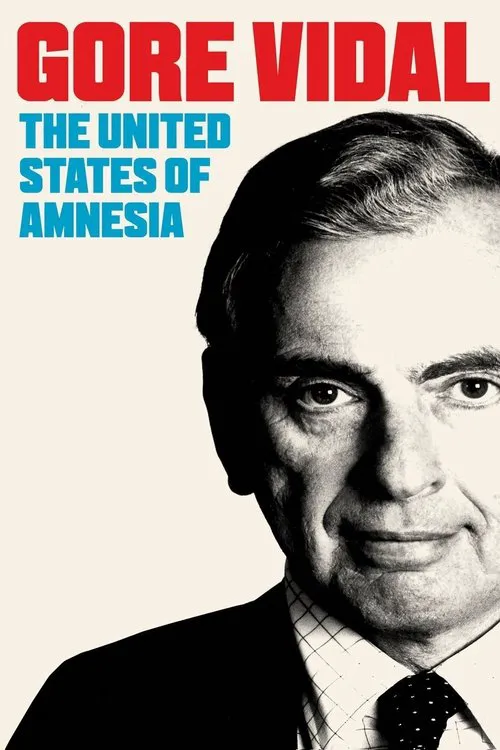Gore Vidal: The United States of Amnesia

Plot
Gore Vidal was a name often associated with wit, intellect, and a sharp tongue. As one of America's most celebrated writers, critics, and intellectuals, his life's work served as a testament to his unflinching commitment to the truth. In Nicholas Wrathall's documentary, Gore Vidal: The United States of Amnesia, the late author's life and legacy are meticulously pieced together, offering an intimate portrait of a true original. The film's core revolves around Wrathall's one-on-one interviews with Gore Vidal himself. Conducted in 2011, just before Vidal's death at the age of 86, these poignant conversations offer a glimpse into the mind of a man who was both a product and a critique of his own time. With Vidal's wit and charm on full display, the camera lingers on his every word, allowing the audience to absorb his thoughts on history, politics, literature, and culture. Throughout the documentary, Vidal's sharp intellect and irreverent humor shine through. He dismisses with a wave of his hand the notion that the US is a 'united' nation, suggesting instead that it is a country built on divisions. 'The United States of Amnesia,' he quips, 'is a nation that has an almost total failure of historical memory.' This astute observation sets the tone for the rest of the film, which navigates Vidal's fascinating life, from his childhood as the son of a Hollywood screenwriter to his rise as a celebrated author and critic. As the documentary unfolds, it is clear that Vidal's life was marked by a series of contradictions. He was both an insider and an outsider, a product of Old Money America but also a fierce critic of the establishment. His early years were spent moving between the East Coast elite and Hollywood, the latter providing the backdrop for his first book, the 1944 novel Williwaw. However, it was his 1950 novel, The City and the Pillar, that brought him notoriety and controversy. The novel's frank portrayal of a same-sex relationship sparked widespread outrage, and Vidal found himself ostracized by the mainstream literary community. Despite this setback, Vidal persevered, continuing to write and observe the world around him with an unflinching gaze. He served in World War II, an experience that would later inform his biting satire, and began to develop his skills as a public intellectual. As he himself acknowledges, his time on the television talk show circuit allowed him to hone his wit and verbal sparring skills. Vidal's incisive observations and razor-sharp wit quickly made him a household name, and he soon became a staple of 1960s and 1970s television, appearing on programs like What's My Line? and The Dick Cavett Show. Those who knew Vidal best also contribute to this documentary, providing valuable insights into the complex, often enigmatic figure. Filmmaker Burr Steers, Vidal's nephew, shares recollections of his family member's mischievous sense of humor and boundless energy. Christopher Hitchens, a longtime friend and intellectual sparring partner, reminisces about the countless hours they spent debating politics, literature, and life. The result is a rich tapestry that captures the essence of Gore Vidal: a man of boundless curiosity, intellect, and wit, and an irrepressible advocate for the arts and for the rights of the marginalized. As the documentary draws to a close, it becomes clear that Vidal's influence extends far beyond the world of literature. He was an early advocate for gay rights, long before such causes became fashionable. He criticized the excesses of capitalist America and the country's militarist foreign policy. He attacked the myth of the 'American Dream,' exposing instead the stark realities of social inequality and economic injustice. Through it all, Vidal's commitment to the truth and to the value of critical thinking shone brightly, a beacon of light in an often darkening world. The final image of Gore Vidal: The United States of Amnesia is of Vidal himself, speaking directly to the camera with a wry smile. It's a poignant moment, one that distills the essence of this extraordinary man. Vidal's eyes sparkle with mischief and intelligence, his voice crackling with the unmistakable sound of his own wit and authority. It is a moment that lingers long after the credits roll, a reminder that Gore Vidal's work and legacy remain as vital and relevant today as they were during his lifetime.
Reviews
Recommendations



